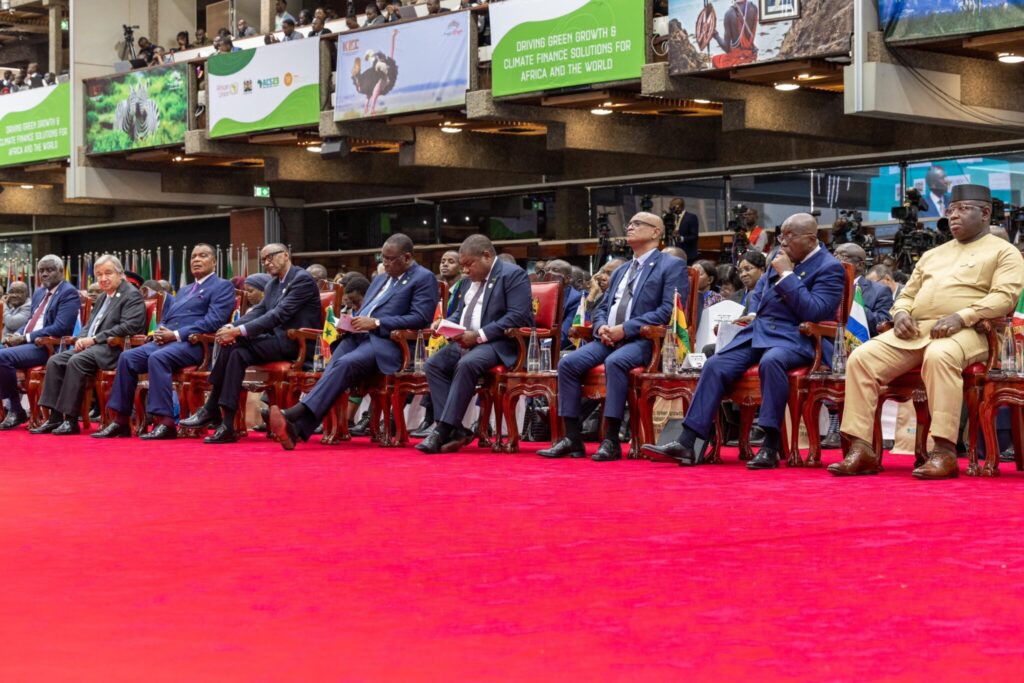African leaders and climate activists on Monday called for a radical overhaul of global climate financing, urging the world to treat Africa not as a victim of climate change but as a strategic partner for investment.
The appeal came during the second Africa Climate Summit in Addis Ababa, where dozens of heads of state, government officials, and civil society representatives gathered to push for greater resources to fund renewable energy and climate adaptation across the continent.
Ethiopian Prime Minister Abiy Ahmed, opening the summit, pressed for a paradigm shift: “We must replace climate aid with climate investment,” he said, highlighting Ethiopia’s progress with the Grand Ethiopian Renaissance Dam, which is set for inauguration on Tuesday, and the nation’s reforestation drive that has planted 48 billion seedlings over seven years.
African Union Commission Chairperson Mahamoud Ali Youssouf emphasized the injustice faced by the continent, pointing to the triple burden of climate vulnerability, debt, and global financial inequality. “We need a genuine cooperation for the implementation of our continent’s adaptation plan by providing financial resources, technology and expertise,” he said.
Kenyan President William Ruto warned against isolationist responses: “The truth is undeniable. No nation can solve this crisis alone. Only through bold, united and sustained collaboration can we avert climate catastrophe. Isolation is not a winning strategy, it is courting failure.”
The summit takes place amid worsening climate disasters across Africa, from crippling droughts to devastating floods and rising food insecurity. Despite ambitious renewable energy commitments made at last year’s summit, implementation has stalled due to inadequate funding.
Civil society leaders urged governments to hold major polluters accountable. Greenpeace Africa’s Amos Wemanya argued that climate justice must involve taxing polluters and the super-rich: “We need to make the polluters who have caused us this climate catastrophe pay for it. We need to tax the polluters. We need to tax the super rich to be able to generate the resources and make them pay for the climate plunder that they are causing the continent.”
Hindou Oumarou Ibrahim, an environmental activist from Chad, warned that “too much talk and not enough action” risks undermining the credibility of African climate leadership, stressing the need for community-centered solutions.
Delegates are expected to adopt a declaration later this week outlining Africa’s climate priorities, which will be presented at COP30 in November. COP30 President Ambassador André Corrêa do Lago, who attended the summit, expressed solidarity with Africa’s vision.
Prime Minister Ahmed summarized the continent’s stance with a pointed message to the international community: “We ask our global partners not to fund us because we are impacted, but to invest with us because we are visionary.”


